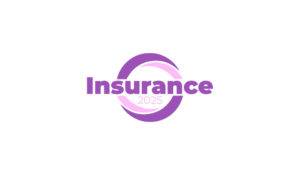. It offers a way to escape the hustle and bustle of everyday life and enjoy the beauty of nature. However, owning a boat also comes with its own set of risks and responsibilities, which is why boat insurance is so important. Choosing the right boat insurance can be daunting, especially if you’re a first-time boat owner. With so many options and policies available, it’s easy to become overwhelmed. In this post, we’ll cover everything you need to know about boat insurance, from the different types of coverage to the factors that affect your premium. So, whether you’re a seasoned boat owner or a newbie, read on to learn how to navigate the waters of boat insurance and make sure you’re covered in case of an accident.
1. Introduction to boat insurance: Why it’s important.
boat insurance :
Boat insurance is an essential aspect of owning a boat that often gets overlooked. Many boat owners assume that their regular homeowner’s insurance will cover any damages or liabilities related to their vessel. However, this is not the case. Boat insurance provides specific coverage tailored to the unique risks and challenges that come with owning a boat.
One of the primary reasons why boat insurance is important is to protect your investment. Boats can be a significant financial investment, and without proper insurance coverage, you risk losing out on substantial sums of money in the event of an accident, theft, or damage. Boat insurance can help cover the costs of repairs or even replace your boat entirely if it is deemed a total loss.
Moreover, boat insurance offers liability coverage, which protects you if someone is injured or their property is damaged due to your boat. Accidents happen, and the expenses associated with bodily injury or property damage can quickly add up. Having liability coverage ensures that you are financially protected and can handle any legal obligations that may arise from such incidents.
Another reason why boat insurance is crucial is that it often includes coverage for additional expenses such as towing, salvage, and assistance in case your boat breaks down or becomes stranded. These unexpected situations can be stressful and costly, but with the right insurance policy, you can have peace of mind knowing that help is just a phone call away.
It’s important to note that not all boat insurance policies are created equal, and it’s essential to carefully review the terms, conditions, and coverage limits before selecting a policy. Factors such as the type of boat, its value, how and where it will be used, and your boating experience will influence the type and amount of coverage you need.
In conclusion, boat insurance is a vital aspect of boat ownership that should not be overlooked. It provides financial protection for your investment, covers liability in case of accidents, and offers additional assistance for unexpected situations. By having the right boat insurance policy in place, you can navigate the waters with confidence, knowing that you are adequately protected.
2. Types of boat insurance coverage
There are several types of boat insurance coverage options available, each designed to meet different needs and circumstances. Understanding these options will help you make an informed decision and ensure that you have adequate protection on the water.
1. Liability coverage: This is the most basic type of boat insurance coverage and is typically required by law in most states. Liability coverage protects you if you cause damage to someone else’s property or injure another person while operating your boat. It helps cover legal expenses, medical bills, and property damage costs.
2. Hull coverage: Hull coverage, also known as physical damage coverage, protects your boat against damage caused by accidents, storms, or other covered events. It covers the cost of repairing or replacing your boat if it gets damaged or destroyed, up to the agreed-upon value stated in your policy.
3. It can cover hospital bills, doctor’s fees, and other medical costs, regardless of who is at fault.
4. Uninsured/underinsured boater coverage: Unfortunately, not all boaters carry insurance, or they may not have enough coverage to fully compensate you for damages in the event of an accident. Uninsured/underinsured boater coverage protects you in such situations, covering your losses if you’re involved in an accident with an uninsured or underinsured boater.
5. Personal effects coverage: This optional coverage protects your personal belongings on board, such as fishing equipment, electronics, and clothing. It provides compensation if these items are stolen, lost, or damaged while on your boat.
6. Towing and assistance coverage: If your boat breaks down or you run out of fuel while on the water, towing and assistance coverage can be a lifesaver. It covers the costs associated with towing your boat to a repair facility or providing on-water assistance.
It’s important to carefully review each type of coverage and assess your specific needs before selecting a boat insurance policy. Working with an experienced insurance agent can help you navigate the waters and ensure that you have the right coverage in place to protect your investment and enjoy worry-free boating adventures.
3. Understanding liability coverage for boating accidents.
When it comes to boat insurance, understanding liability coverage for boating accidents is crucial. Accidents happen, even on the water, and being prepared for any potential liabilities is essential for boat owners.
Liability coverage protects you in case you are found at fault for an accident that causes property damage or bodily injury to others. This coverage ensures that you have financial protection and can cover the costs of legal fees, medical expenses, and property damage repairs if you are held responsible for an accident.
It’s important to note that liability coverage for boating accidents typically includes two components: bodily injury liability and property damage liability. Bodily injury liability covers the medical expenses, lost wages, and other damages suffered by others involved in the accident. Property damage liability, on the other hand, covers the costs of repairing or replacing the property of others that has been damaged as a result of the accident.
The specific limits and coverage options will depend on your insurance policy, so it’s crucial to carefully review and understand the terms and conditions. Some policies may offer additional coverage options, such as pollution liability coverage or wreckage removal coverage.
To determine the appropriate liability coverage for your boat, consider factors such as the size and type of your boat, the number of passengers you typically have on board, and the waters you navigate. Higher liability limits are generally recommended for larger boats or boats used in crowded areas.
Lastly, it’s important to keep in mind that liability coverage only protects you in case you are at fault for an accident. If you’re involved in an accident where the other party is at fault and does not have insurance, you may want to consider uninsured boater coverage to ensure you’re protected.
Understanding liability coverage for boating accidents is a critical step in navigating the waters of boat insurance. By having the right coverage in place, you can enjoy your time on the water with peace of mind, knowing that you’re financially protected in case of any unforeseen incidents.

